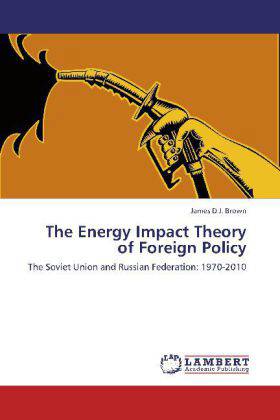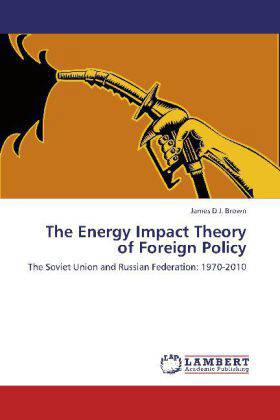
- Afhalen na 1 uur in een winkel met voorraad
- Gratis thuislevering in België vanaf € 30
- Ruim aanbod met 7 miljoen producten
- Afhalen na 1 uur in een winkel met voorraad
- Gratis thuislevering in België vanaf € 30
- Ruim aanbod met 7 miljoen producten
Zoeken
The Energy Impact Theory of Foreign Policy
The Soviet Union and Russian Federation: 1970-2010
James D J Brown
Paperback | Engels
€ 77,95
+ 155 punten
Omschrijving
National wealth derived from the production of oil and gas is considered exceptional. As well as being potentially detrimental to the broader economy, it is thought liable to diminish standards of governance and fuel civil conflict. However, while these and other domestic effects have received significant attention, little systematic research has been completed into the potential for fluctuations in energy wealth to function as an underlying determinant of foreign policy. This book corrects this oversight by presenting the energy impact theory of foreign policy. Drawing upon the "resource curse" literature as well as existing works of foreign policy analysis, the model predicts that increases in energy riches not only amplify the scale and scope of major energy-producing states' international activity, but induce aggression, unilateralism, and even potentially ruinous overconfidence. This model is tested using detailed case studies of the Soviet Union and Russian Federation, 1970 to 2010, and is found to display considerable predictive potential. As such, this book is likely to be of significance to all those with an interest in energy, IR theory and Soviet/Russian foreign policy.
Specificaties
Betrokkenen
- Auteur(s):
- Uitgeverij:
Inhoud
- Aantal bladzijden:
- 448
- Taal:
- Engels
Eigenschappen
- Productcode (EAN):
- 9783848415731
- Verschijningsdatum:
- 2/03/2012
- Uitvoering:
- Paperback
- Formaat:
- Trade paperback (VS)
- Afmetingen:
- 152 mm x 229 mm
- Gewicht:
- 653 g

Alleen bij Standaard Boekhandel
+ 155 punten op je klantenkaart van Standaard Boekhandel
Beoordelingen
We publiceren alleen reviews die voldoen aan de voorwaarden voor reviews. Bekijk onze voorwaarden voor reviews.











